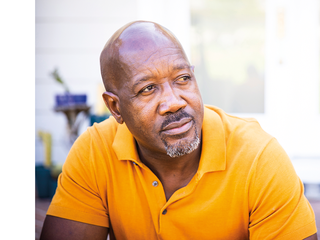What is Waldenström macroglobulinaemia (WM)?
Waldenström macroglobulinaemia (WM) happens when blood cells called plasma cells develop in an unusual way in your bone marrow.
WM and LPL cells
WM is a slow-growing type of blood cancer. It is classed as a type of non-Hodgkin lymphoma (NHL).
Plasma cells are blood cells that release antibodies to help you fight infection. They develop from a type of white blood cell called B lymphocytes or B cells. These cells are made in your bone marrow (the spongy material found inside some of your bones).
If you have WM, some of your B cells don’t change into plasma cells, and instead make cells known as lymphoplasmacytic (LPL) cells. This is why WM is sometimes called lymphoplasmacytic lymphoma.
How does WM affect the body?
LPL cells can cause two main problems in your body:
- If too many LPL cells build up in your bone marrow, they can stop healthy blood cells being made.
- LPL cells can also clump together in your lymph nodes (glands), your spleen (a fist-sized organ on the left side of your body, behind your ribs), and other organs.
- LPL cells release a large amount of a protein called immunoglobulin M or IgM (also called IgM paraprotein). This makes your blood thicker and can stop it flowing easily through some of your blood vessels.
What causes WM?
WM is very rare. Around 350 people are diagnosed with WM in the UK each year. There’s no clear cause of WM, but certain factors can affect how likely you are to develop it:
- Age: WM usually affects adults over 65 years old.
- Sex: It’s more common in men than women.
- Family history: You’re more likely to develop the condition if you have a relative with WM, although this is very rare. Your risk may also be higher if you have a family history of autoimmune conditions (where your body mistakenly attacks healthy cells, such as Sjögren syndrome), or certain infectious diseases.
- Ethnicity: People from a white European background tend to have a higher risk of developing WM.

I've just been told I have blood cancer
For people who've recently been diagnosed with blood cancer, we have information you may find useful and supportive at a difficult time.
